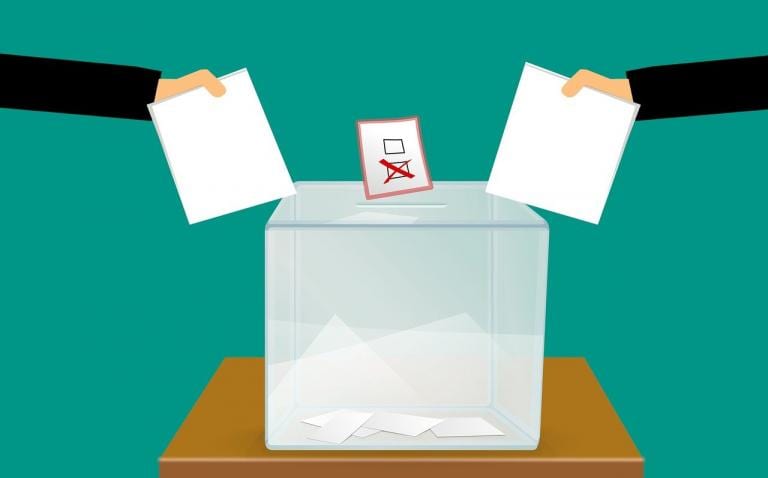Yesterday we discussed factors that we voters use to evaluate candidates (their beliefs, policies, personal qualities, and effectiveness). But often we cast our votes for reasons that have little to do with the particular candidate.
In 2016, Hillary Clinton pledged to put the coal industry out of business. Whereupon she lost the normally-Democratic stronghold of West Virginia. Coal miners, quite appropriately, voted in their self-interest.
Sometimes, an election has the potential of materially impacting one’s livelihood, for better or for worse. Someone in the oil industry–not just the J. R. Ewings but the drillers, roughnecks, and refinery workers–cannot be expected to vote for a candidate supporting the Green New Deal. But owners of alternative energy companies and electric car investors would.
Peer Pressure
We tend to vote the way our friends, our immediate social circle, or our larger peer group vote. If you work at a large secular university, you would likely feel embarrassed to admit any affinity for Donald Trump, worrying that you might be ostracized in the faculty lounge. Similarly, you might feel ashamed to admit being a fan of Joe Biden to your hunting buddies. To be sure, we can still vote as we please, thanks to the secret ballot, while keeping our preference to ourselves. But we generally want the approval of the social group we belong to or aspire to, so peer pressure can definitely affect our voting.
Loyalty
I grew up in the land of “Yellow Dog Democrats,” as in, “I’d vote for a yellow dog if he’s a Democrat.” We were completely loyal to the Democratic Party, largely due to our loyalty to Franklin Delano Roosevelt, who, we believed, brought us through the Depression. I never even met a Republican until I went to college and one of them married into our family, a “mixed marriage” that some of us thought could never last.
Many voters have the virtue of loyalty. They are loyal to their party, or they are loyal to a particular candidate, whether an incumbent or a challenger. In the 2020 Democratic primary, black voters–known as “loyal Democrats”–mostly refused to vote for black candidates and instead rallied to Joe Biden, largely out of loyalty to Barack Obama, for whom Biden was a loyal Vice-President. Many voters feel an intense loyalty to their current president, Donald Trump. They will vote for him no matter what.
In fact, campaigners need to realize that for voters motivated by loyalty, negative ads, personal attacks, and harsh criticism of the person to whom they are loyal will only solidify their support for their candidate. Instead of making those voters change their mind, such ads make the supporters defensive and angry.
The only way to win over loyal voters is to get them to transfer their loyalty. Where I came from, Ronald Reagan–who professed to be an FDR Democrat who said he didn’t leave his party, his party left him–won the loyalty of small town rural Oklahoma, which is now populated by Yellow Dog Republicans.
Voting Against
One of those small town rural Oklahomans, Will Rogers, said, “In this country people don’t vote for, they vote against.” And research bears that out.
Lots of us vote not because we like the candidate we vote for, but because we dislike the other candidate so much. In 2016, this hurt Hillary Clinton, who inspired a visceral animosity among many voters, who voted for Trump instead. In 2020, this will hurt Donald Trump, who inspires what is probably an even greater animosity. Biden, who does not evoke such a negative reaction, will be the beneficiary of the anyone-but-Trump vote. Though some voters, while not having anything against Biden, as such, will vote for Trump as a vote against the elite leftists they expect him to bring in to govern us.
There is also the existential threat motivation, the sense that the election of one of the candidates would threaten the very existence of our nation–or our liberties, or our democracy, or our economic prosperity, or our overall way of life. Today, the Democrats are saying this of Trump, and the Republicans are saying this of Biden.
Voting for Ideals
We can also vote for higher ideals. Patriotism can be a great motivator. So can overthrowing capitalism. Citizens may not agree on the ideals or on the policies we need or the candidate who can achieve those ideals. But it is possible to cast our vote not just for our own good but for what we consider to be the good of the nation. Or, as in Christian vocation, the good of our neighbors.
Can you think of other intrinsic motivations we have overlooked? How can an individual voter weigh and balance these different concerns? How have you sorted them out for yourself?
Image by mohamed Hassan from Pixabay












